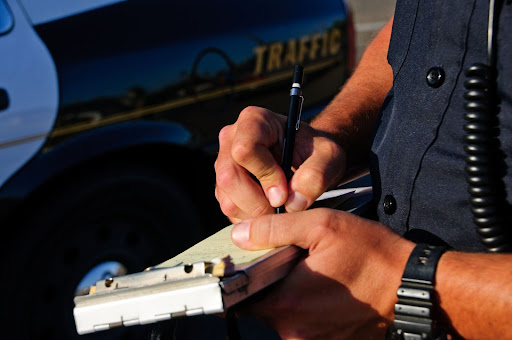Are Illinois traffic tickets reported to other states?
Motorcycle Accident - June 9, 2025 by Horwitz, Horwitz & Associates
The simple answer is yes — Illinois ensures traffic tickets are reported to most other states, and a traffic ticket in Illinois might have consequences in your home state. Continue reading to learn more, then contact Horwitz, Horwitz & Associates if you’ve been injured in a traffic accident.

Driver License Compact
Illinois is a member of the Driver License Compact (DLC), an agreement between 46 member states and Washington DC to exchange information about traffic violations and licenses among each other. Its theme is “One Driver, One License, One Record.” It’s designed to promote uniformity and public safety on roads, regardless of a driver’s state of residence. This allows Illinois to report traffic tickets that a person receives within the state to other member states.
Only four states aren’t members of the DLC: Georgia, Massachusetts, Michigan, and Wisconsin. If you reside in one of these four states, any traffic tickets you receive in Illinois might not be reported to your home state. Residents of all other US states can expect Illinois to report their traffic violations and other licensing information.
It’s important to note that most of the non-member states of the DLC are members of other, less comprehensive, compacts regarding traffic ticket reporting. The Non-Resident Violator Compact (NRVC), for instance, allows member states to notify other member states when an out-of-state driver fails to pay a traffic ticket. This can result in the offender’s license being suspended in their home state.
How information is shared between states
Under the DLC, the following types of information may be shared between the member states:
- Driving violation convictions, such as vehicular homicide, driving under the influence, and hit-and-run
- Traffic tickets
- Past and current driver’s license information, including suspensions and revocations
Keep in mind that only moving violations are reported between member states. Information about non-moving violations, such as parking tickets, should not be shared between states under the DLC.
The DLC connects each member state’s respective licensing authority, such as the Department of Motor Vehicles (DMV) or Bureau of Motor Vehicles (BMV). For example, when a driver from New York receives a ticket or is convicted of a traffic violation in Illinois, the Illinois DMV will collect and report this information to the New York DMV.
The report will identify the person convicted and the court that handled the case, describe the violation that has occurred, and indicate whether the offender plead guilty or not guilty.
Ways that ticket reporting can impact your record
Level of charge
In general, driving-related offenses committed by non-residents in a DLC member state are treated as though they had been committed in the offender’s home state. However, in most cases, the case will be handled by the court system of the state in which the offense occurred.
This means that if you’re driving through Illinois with a New Jersey driver’s license and receive a speeding ticket, for example, you’ll receive New Jersey’s state-specific penalties for a speeding ticket even though it’s an out-of-state offense. You’ll also likely have points added to your New Jersey driver’s license.
Likewise, if you’re charged with a serious moving violation such as vehicular homicide in Illinois as a Virginia resident, the Illinois criminal court system will handle your case and decide whether or not to convict you. The Illinois DMV will be informed of any convictions you receive and report the conviction to the Virginia DMV. The Virginia DMV may then take action against your driver’s license, such as suspending or revoking it.
Revocation of your license
The information reported between member states can also affect your eligibility for a driver’s license if you decide to move to a new state, especially if you’ve been convicted of a serious driving violation.
For instance, if you receive a driver’s license revocation on your Illinois license due to a history of driving under the influence of alcohol, and you move to Ohio soon after, the Ohio BMV will be alerted about the revocation when you apply for an Ohio driver’s license. Under the terms of the DLC, the Ohio BMV will likely refuse to issue you a license in your new home state due to the revocation in Illinois.
Higher insurance rates
An out-of-state driving violation could also affect your auto insurance rates. All out-of-state traffic convictions that occur within DLC member states are displayed on a driver’s record. Auto insurance carriers can see this information when evaluating your policy application in your home state and may decide to charge you higher rates than normal due to the infraction.
Learn more from our attorneys
Out-of-state driving violations can complicate an already complex matter, especially if you suffered an injury related to the violation. That’s where Horwitz, Horwitz & Associates comes in. Our Chicago car accident attorneys can help you determine if you’re entitled to compensation due to the incident and how best to pursue it.
Contact us today at (800) 985-1819 for a free consultation about your case. Our experienced legal team is here to answer any questions you may have.


